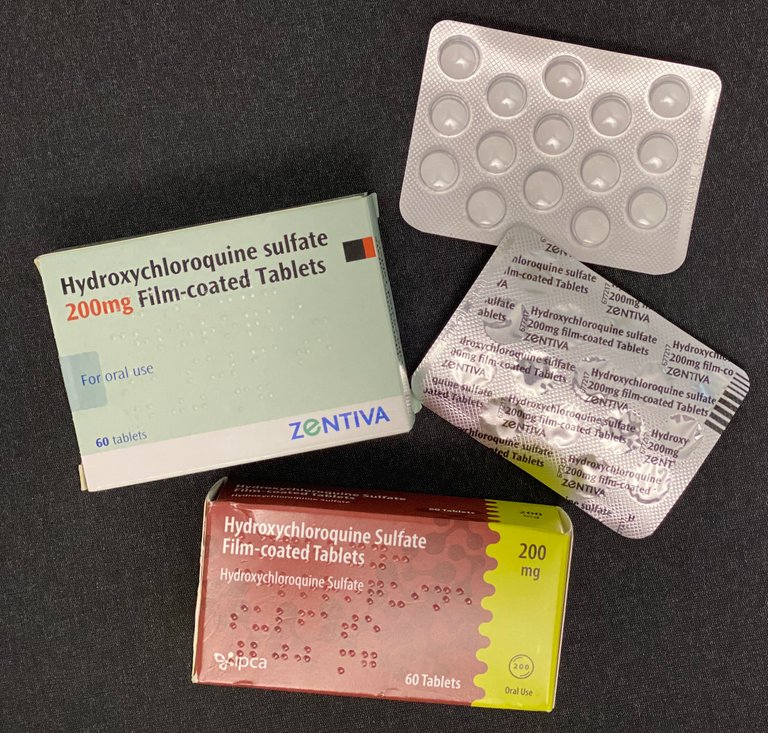The Reality of Malaria Drug 'Hydroxychloroquine' and COVID-19 Treatment (Beyond Hype)
If you were glue to your television device just as I was during the Covid-19 lock down period, then there is a possibility that you must have heard the word Hydroxychloroquine and how it was going to be useful in treating Covid-19 while some other scientists believed it was going to be a breakthrough drug to end the pandemic but before I continue, it is important that I state that the drug did not significantly reduce viral loads in patients, did not significantly reduce viral loads in patients, and did not reduce the mortality rate in hospitalized COVID-19 patients. But why did people think that this drug was going to be a potential Corona virus cure?
Hydroxylchloroquine is a malaria drug that was believed to be useful in fighting Covid-19, but its trial was stopped towards the end of May, 2020. The drug is a prescription drug modeled after quinine which is a natural drug made from tree back for treating malaria and was the drug that paved the way for the drug chloroquine which was used to treat malaria but then its side effects like retina damage and causing difficulty in hearing was why a less risky version was developed in 1955 known as hydroxylchloroquine.
Hydroxylchloroquine is a drug made up of Carbon, Hydrogen, Chlorine, Nitrogen, and Oxygen atom. The combination of the drug mixed with an hydroxyl group makes it less risky but it is still a drug with versatile effect similar to chloroquine. Chloroquine can be used for Malaria prevention and treatment, and Amebiasis treatment while Hydroxylchloroquine can be used for for the same purpose of treating malaria as well as preventing it, lupus treatment and for treatment of rheumatoid arthritis. So these drugs multipurpose abilities would have been a possibility why the theory of them being useful in treating Covid-19 became a thing.
First is that the drug limits the body's immune response preventing it from being overly active and that is why it is effective in treating autoimmune diseases like rheumatoid arthritis, and Lupus. Also, the drug has been shown to be effective against viral infections such as HIV as it reduces HIV replication. With this, researcher tested chloroquine on SARS-CoV (which emerged in 2002) on cell culture In-vitro and the drug had inhibitory effects on the virus as chloroquine has an anti-binding activity on ACE2 receptor in humans.
This led the FDA to approve the drugs for Covid-19 emergency cases as well as prevention but after the approval, it became clear that while the drug had effects on the virus in-vitro, it didn't have the same effect in-vivo. While there are no side effects of the drug usage in the laboratory since petri dishes and agar do not show these side effects, there were side effects when the drugs were consumed by humans. These side effects includes Headache, Nausea, Hair Loss, diarrhoea, drowsiness, and affecting the electrical activities of the heart causing abnormal heart rhythm.
But then after people started to take these drugs, researcher began to analyze data from people who had taken the medications for the purpose of treating Covid-19, and then realized that the drug had no positive effect on the virus rather it could make the patient's health condition worse as they were associated with increased mortality rate in patients and increased frequency of ventricular arrhythmias. This studies caused the WHO to stop its trial on Hydroxylchloroquine as well as Chloroquine for Covid-19.
Despite early hopes in the drug, it ultimately proved to be an ineffective and potentially harmful option for treating COVID-19. Although, trials by the WHO was discontinued, a lot of other organizations and countries are still researching on the drugs and its potential effect on viruses. With this post we should state that there is a need for continuous research and evidence-based approaches in medical science.
Read More
https://www.ncbi.nlm.nih.gov/pmc/articles/PMC7476892/
https://www.webmd.com/drugs/2/drug-5482/hydroxychloroquine-oral/details
https://www.who.int/news-room
https://www.sciencedirect.com/science/article/abs/pii/0149291895800395
https://www.ncbi.nlm.nih.gov/pmc/articles/PMC3821003/
https://www.ncbi.nlm.nih.gov/pmc/articles/PMC2141601/
https://www.ncbi.nlm.nih.gov/pmc/articles/PMC8381625/
https://www.ncbi.nlm.nih.gov/pmc/articles/PMC7411564/
https://pubmed.ncbi.nlm.nih.gov/32634079/
https://www.thelancet.com/journals
https://www.who.int/news-room/questions-and-answers/item/coronavirus-disease-covid-19-hydroxychloroquine

